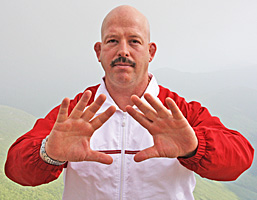‘Twas a long, long time ago, but I can still vividly recall.
I was working a wrestling camp in Cedar Falls, Iowa, and my friend and fellow instructor, Mike, was teaching the high schoolers a new technique.
As Mike was doing so, someone asked, “What if he counters that move by doing this?”
Mike thought the “What if?” questions were over, but later on, when he began teaching another technique, a whole new level of “what if?” questioning began.
Mike did his best to be polite and answer the boys’ questions, but you could see he was getting ready to erupt.
Why? Because the boys didn’t even know the move, yet they were already dreaming of imaginary scenarios where it might not work. That’s not the proper way to learn.
Anyway, a bit later that evening, when Mike started showing another move, the boys hit him with the same type of questions again. With a stern smile on his face, Mike barked, “What if my aunt had a deek? Well, she’d be my uncle, wouldn’t she?”
Mike didn’t stop there, either. He ran through a litany of off-color “what if?” scenarios that made almost everyone howl.
Mike’s humorous outburst was the perfect answer to the ridiculous questioning taking place. His point was that you can always come up with a “What if?” – but ‘what if’ your questions are coming too soon in the process?
And that process goes as follows:
First, you practice what the instructor taught without pressure of any kind; without anyone attempting to counter in any way.
Second, you continue to practice until you can do the move smoothly enough that even if someone tries to counter, it will be difficult to do so.
Third, when you finally do run up against someone who can counter your move, that is when you begin to make refinements and adjustments.
If you ask “What if?” before you give yourself a chance to learn before someone counters, you’re defeated before you start.
There is a positive way to use “What if?” questions, but today’s message is about guarding yourself against the negative “what if’ers,” especially when it is directed at you by doubters, naysayers and counter-creators.
For example, let’s say you have a goal in mind, such as writing a book, and you make the mistake of telling a malcontent about it. Instead of supporting you, he or she will immediately say something such as, “Well, what if it doesn’t sell? Whatcha gonna do then?”
The worst part of being around negative “what if’ers” is that you can unconsciously become one yourself.
Every time you get an idea, instead of mapping it out with enthusiasm, you begin to interrogate yourself. You ask yourself negative “What if?” questions, and it isn’t long before you discard your goal. This is when you are being your own worst enemy.
Again, there is a time and place for “What if?” questions, but it isn’t in the beginning, before you have traction.
Untimely “What ifs?” are symptomatic of the failure mechanism. They’re designed to cause uncertainty, fear, worry and doubt.
It’s bad enough when other people clobber you with “What ifs?” – but it’s far worse when you do it to yourself.
Matt Furey
P.S. Two days from now, April 16, at 7 PM EST, I am going to be holding another Intensive. This one, Defeating the Failure Mechanism, is a huge topic for so many. We will get into conquering the “What If’ers,” even those inside your own mind. The fee for this Intensive is $177. Want to be involved? Send an email to mattfurey@mac.com and I will get you a link to enroll.

